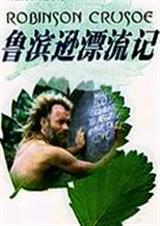带你去耶鲁-第12部分
按键盘上方向键 ← 或 → 可快速上下翻页,按键盘上的 Enter 键可回到本书目录页,按键盘上方向键 ↑ 可回到本页顶部!
————未阅读完?加入书签已便下次继续阅读!
For undergraduate; we usually get them to write something that is sound; well…quoted in literature and the question is reasonable; that a scholar would ask。 Generally speaking; undergraduates don’t know how to do these things for their long essays in senior year。
C: What does a foreign student need to know about doing research in the United States?
D: Sometimes there is a particular difficulty for some cultures。 People from those cultures are accustomed to rote learning(死记硬背的学习)。 I see it’s very mon that they always memorize things and spell them out again。 They have to be broken of that because American learning is not a rote learning; maybe it should be for the earlier grades; like elementary and high schools with language and math。 But by the time they are 18 or 20; there should not be too much rote learning; but for some cultures; that’s difficult and it’s a shock for them。
Also; you have to know how to use resources in the ; how to use library and how to use professors。 The latter one is important and you have to know some munication skills to get help and instructions from professors。书包 网 。 想看书来
中国学生: 走出自己的圈子(2)
C: I think the relations between professors and students in the States are different from that in China。
D: How is that?
C: When I’m talking to you; I somehow feel like talking to a friend; more casually and frankly。 When I was in China; I always felt a gap confronting a professor。
D: I’m not unique in the ; most professors in this country are like this。
C: I also feel that Chinese professors are busy with their research and don’t have too much time to talk to their students。
D: That’s very mon in the America too; but at Yale; there are not too many students so the professors can have more time with individuals。 I don’t have more than 4 students each year as their chief advisor。 Also; it’s a norm and expectation for a professor to spend more time on teaching。 They would have some problems if they are bad teachers。 Students have the newspapers and the school also has evaluations。 At Yale; students go to the puters to do the evaluation; I can see the ments and evaluation but other professors can’t。 These evaluations are informal; but if you don’t do well; the word will get around。
C: What steps should a student take to prepare for graduation studies?
D: Good English is ’s not new。 They don’t know what getting ’t have a 3 year cap like Law School。 It takes you five or six years to learn how to write a dissertation and that’s not the end of a rainbow。 You won’t be paid like a lawyer or a doctor。 I see many students came across this difficulty in the third or fourth year that they don’t want to continue but I don’t see many Chinese students quit and they seem to know what they are doing and be more embedded in this life。
C: If you were meeting with a group of students from China; what advice would you give them to help them be successful at Yale?
D: They should be enterprising。 Go out to use the system; to meet people and to try out classes。 Use Yale as a base and as well as a resource to go to different places to be exposed to a different culture。 There are many Chinese students studying in the States and they should try to go outside of them; not only hang out with their own people。
C: What has your experience been with Chinese students?
D: My experience with Chinese students for the last fifteen years is that they were smart and good at mathematics and were well…prepared; but before that; students who came here twenty…five years ago were not very good。 I think maybe the selections were somehow wrong in that time but now it is getting better and better。
C: What criteria does Yale use to select foreign graduate students? How; if at all; does the selection criterion vary for foreign students versus students?
D: I used to be in the mittee。 Generally speaking; we have the same criteria for American students and Chinese students。 We mix their applications together。 They are in the same pool; but the documentations from them are different。 We know how to read the applications from American students。 We know how to read the letters; the professors who did them and the grade systems in high schools。 For European students; we know accordingly。 From China; it’s DIFFICULT。 We have some professors who know how to read applications from China; but not many。 Language potential is also a big concern when we think about a Chinese student; we don’t just refer to scores。 When I was in the mittee we had problems in accessing Chinese students’oral language skills but now we have interviews。
中国学生: 走出自己的圈子(3)
C: What characteristics of American students impress you the most?
D: Creative。
C: What’s the advantage of American education? In China; school educations are more knowledge…based than that in the States; do you think it’s good or bad?
D: I think it’s good for primary schools and high schools。 These levels of education in the States have problems with helping students to gain more knowledge。 Many students are bad at math; history; and grammar。 Many parents get their children out of the public schools and send them to private schools to get a better education。 I did see some undergraduates at Yale don’t know too much about history; even American history。 But at colleges; knowledge is not enough; you need to pay more attention to questions; how to ask a question and how to find a solution to the question。
大卫教授今年70多岁, 白眉银发, 有点仙风道骨的味道。 他常挎着背包匆忙地走在校园里。 一身朴素毫不起眼, 但停下来跟你说话的时候, 眼神里的睿智和慈爱透着大教授的风范。 他告诉我一件轶事, 有一年他被邀请去白宫和总统共进晚餐, 临行前发现自己没有一套像样的西装, 于是决定第二天早晨乘火车购买。 可是早晨出门才发现商店都没开门(他居然不知道通常商店几点开门), 只好匆匆地上了火车赶往华盛顿。 到达以后叫出租车直奔商店, 换上新买的西装准备去白宫赴宴, 可在路上一低头发现自己的鞋子是一双穿了十几年的老皮鞋, 旧得都快变形了。 只能掉头回去买鞋, 一身行头置办好了, 终于在最后一刻赶到白宫。 这样一位耶鲁最高荣誉的终身教授, 亲近、 平和得没有一点架子。 他愉快地接受了我的采访, 希望通过这本书可以和中国的学生交流他对学术研究以及在耶鲁学习、 教学的体会。
The problem of social science research in the ; too narrow to be interesting。 There is a large range of interesting questions to explore。
They should be enterprising。 Go out to use the system; to meet people and to try out classes。 Use Yale as a base and as well as a resource to go to different places to be exposed to a different culture。
Language potential is also a big concern when we think about a Chinese student; we don’t just refer to scores。
十字路口的理性选择(1)
李继: 本科就读于外交学院, 毕业后赴美留学, 获美国西北大学政治学博士。 在耶鲁大学法学院攻读(Juris Doctor)学位, 毕业后就职于纽约一家全球著名的律师事务所。
马: 李继, 你是什么时候决定出国的, 为什么会选择出国?
李: 大二、 大三的时候做出决定, 开始准备出国。 我本科是在外交学院读的, 我们的学生基本上有以下几种出路: 出国、 读研、 毕业后去外交部工作。 我觉得其他的选择都不适合我, 所以只能出国。 我学了那么多年英语, 不出国挺浪费的。
马: 看来出国对你而言是一个排除性的选择。
李: 是的。 出国读书和在国内考研这两件事是平行的, 都要大三就开始准备。 我觉得自己不擅长死记硬背, 如果考研的话, 政治考试肯定不行, 所以就把这个选择排除了。 当时看到以前学长拿了美国大学的奖学金, 不花钱还能读书、 开眼界, 这个吸引力挺大的。 找工作对于外交学院学英语的学生来说, 压力不是很大, 毕业以后找个不错的工作基本上没问题。 所以工作变成了我的一条退路。 万一出国留学这条路走得不顺利, 也有不错的退路, 心里比较有底。 对于去美国读书, 我不是孤注一掷地往前冲, 我的专业是经济外交, 一般这个专业的学生毕业以后去使馆做经济调研比较多, 但我大二的时候发现自己不适合也不喜欢去机关工作, 所以我决定试试出国这条路。
马: 你在选择留学专业上有什么考虑?
李: 我是去美国读博士, 我的选择必须和自己本科所学的专业有关联。 在外交学院, 我除了学外交英语, 还学了政治外交类的课程。 所以我申请美国大学的时候, 选择了政治科学的博士, 申请的过程和大家都差不多。
马: 你是先去西北大学读了四年博士课程, 然后再来耶鲁法学院的, 你觉得在西北大学那四年里, 自己有什么变化吗





